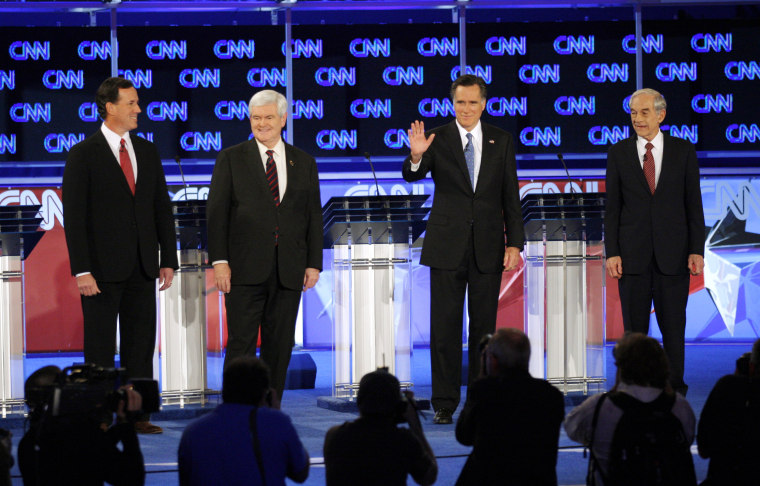The conversation about education has taken a backseat in recent campaign coverage, but that could soon change as the Republican presidential candidates take their fight west for Saturday’s primary in Nevada.
After a long battle in Florida, Mitt Romney and Newt Gingrich join Rick Santorum and Ron Paul in the Silver State to campaign for the state’s 28 delegates. Nevada has traditionally voted for the winner in past presidential elections.
Nevada is also the most recent state to announce their plan to apply for a waiver for the No Child Left Behind act that was signed into law back in 2002. The waivers were introduced last August by President Obama in an effort to give states back the power to set their own achievement goals. In order to obtain a waiver, states must create their own standards and plans to improve student performance.
NCLB waivers are not the Obama administration’s first attempt to encourage states to re-prioritize education. In 2009, President Obama and Secretary of Education Arne Duncan announced the Race to the Top competition for K-12 schools. Race to the Top seeks to reward states that meet certain national standards. Last week, Obama announced a similar Race to the Top competition for higher education.
Former Vermont Governor Howard Dean was on Morning Joe last week to discuss education reform, a polarizing issue that has contributed to the divide between Republicans and Democrats.
Of the four remaining GOP nominee contenders, Ron Paul is the only candidate to have consistently voted against NCLB and any other legislation that would increase the federal government’s role in schools. "Education isn’t a right," Paul told msnbc last March.
Mitt Romney, Newt Gingrich and Rick Santorum have all supported NCLB in the past (Santorum voted in favor of it back in 2001), but have recently expressed belief that the federal government should stay out of education. In the Jan. 16 debate in South Carolina, Gingrich called NCLB "clearly a failure."
Since the Obama administration announced the option to waive NCLB, 39 states, the District of Columbia and Puerto Rico have expressed interest, according to a Washington Post op-ed by Secretary of Education Arne Duncan. So far, 11 states have submitted plans, including Colorado and Minnesota, whose primaries are set for next Tuesday.
Is education reform an issue for the federal government, or for individual states? What do you think the federal government’s role, if any, should be?
